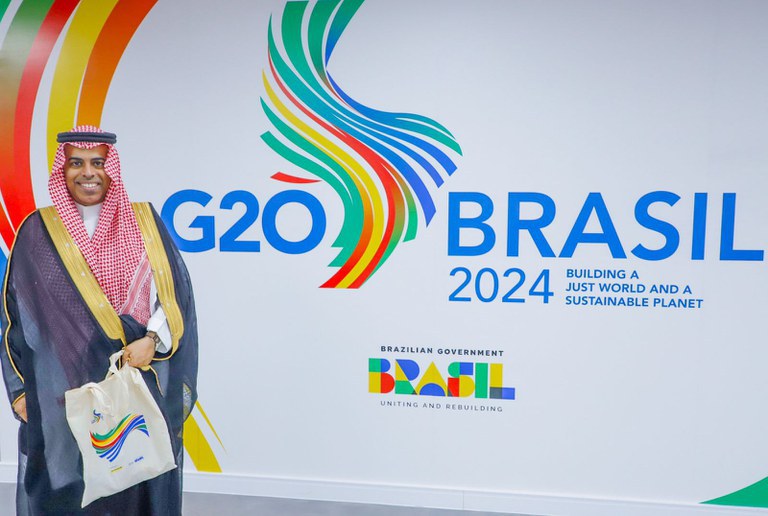Advanced cookie settings
To improve your experience on the platform and provide personalized services, we use cookies.
Notícias
G20 English

Photograph: Matheus Damascena - ASCOM/MTE
Products from the popular solidarity economy´s enterprises won the delegates’ hearts at the G20 Brazil’s 2nd Technical Meeting of the Working Group on Employment, held in Brasília (DF), between March 27th and 28th. Each of the 200 participants from the 50 delegations, from five continents, took home an ecobag with honey, assorted nuts and other Brazilian items resulting from social projects that value productive inclusion.
Saudi Arabia's Deputy Minister of Labor, Mohannad Ahmad Aleisa, was surprised to explore the ecobag and find food as well. "I'm happy to receive local products. I'm already looking forward to trying the honey and chestnuts," said Aleisa.
The representative of the French government to the International Labor Organization (ILO), Anousheh Karvar, was pleased with the souvenir she received from the Brazilians. She said she would carefully keep it for when she returned home to share the food with her family.
Origin of products
The ecobags were made by the Solidarity Agroecological Cotton Network, which includes 700 cooperative members, who are family farmers, weavers, artisans and seamstresses from five states of the country.
Honey is one of the foods produced by the Cooperative for Sustainable Family Agriculture Based on the Solidarity Economy (COPABASE), which has in its structure several agroextractive production chains and involves workers from five cities in Minas Gerais.
The various types of nuts are from Central do Cerrado, which brings together 17 cooperative enterprises and seven more partners from quilombola, indigenous, extractivist and family farming communities.
The products were made possible through solidarity economy projects supported by the Banco do Brasil Foundation.
What is a charitable enterprise?
A solidarity economy enterprise produces within the principles of cooperation, self-management, solidarity, in a sustainable way and with fair prices. According to data from the National Registry of Solidarity Economy (CADSOL), Brazil has registered 20,670 enterprises that operate in this format, in which 1,425,158 workers participate.
